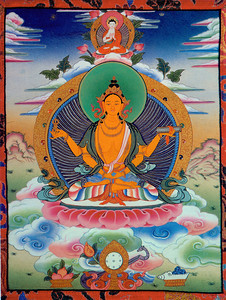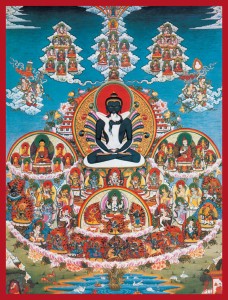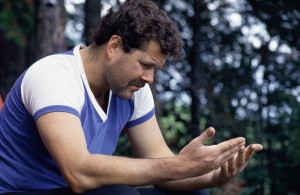An excerpt from a teaching by Jetsunma Ahkon Norbu Lhamo on October 18, 1995
When one regards the Lama, we see that the causes or seeds for suffering are not there. However, when we regard our own mind and our own perception, and the way that we think, the seeds for all suffering are within that. Our normal waking consciousness, our ego, our samsaric nature, whatever it is that we think of ordinary ourselves as being right now, that does indeed arise from samsaric causes, from causes that we have actually created and which are, for the most part, non-virtuous. We have not understood the view, nor have we understood any way to be happy. So, when it comes to our state and our mind, there is the cause for suffering. We need to distinguish between these, because when we look at the Guru we have to understand that there in that place, there is no cause for suffering.
This is an antidote to the tendency for practitioners who wish to completely open their minds to pure perception but are unable to do so. They wish to completely practice surrender to the devotional yoga. They wish to open their hearts to the Guru, and receive the blessing without any obstacle or inhibition, but are unable to because they themselves have experienced trauma, hurt, and different kinds of suffering associated with samsaric life. The antidote is to think and concentrate on the Guru as that which arises from the Mind of Enlightenment that does not have within it the causes for suffering. It is our own ordinary mind, our samsaric personality ego structure that has within it all of the causes for suffering.
Because we are speaking about our perception, of course we can perceive anything any way that we want, and therefore, we are likely to experience suffering. Even if it seems as though we experience suffering from an enlightened source, we know that this cannot be so. Learning to distinguish, learning to understand what that actually means for us is the first step in learning how to practice spiritual surrender. We have to give up our old habit of blame. We have to really attain self-honesty. We will depend on self-honesty in order to not exert the tendency of placing blame on something external. If we have not attained any self-honesty, the pain that we suffer, the trauma that we live through, still comes from “out there.” However, once we have learned self-honesty, we learn that what we are suffering from is our own inability to practice those causes, which create happiness. So, we accept personal responsibility for that.
© Jetsunma Ahkön Lhamo









